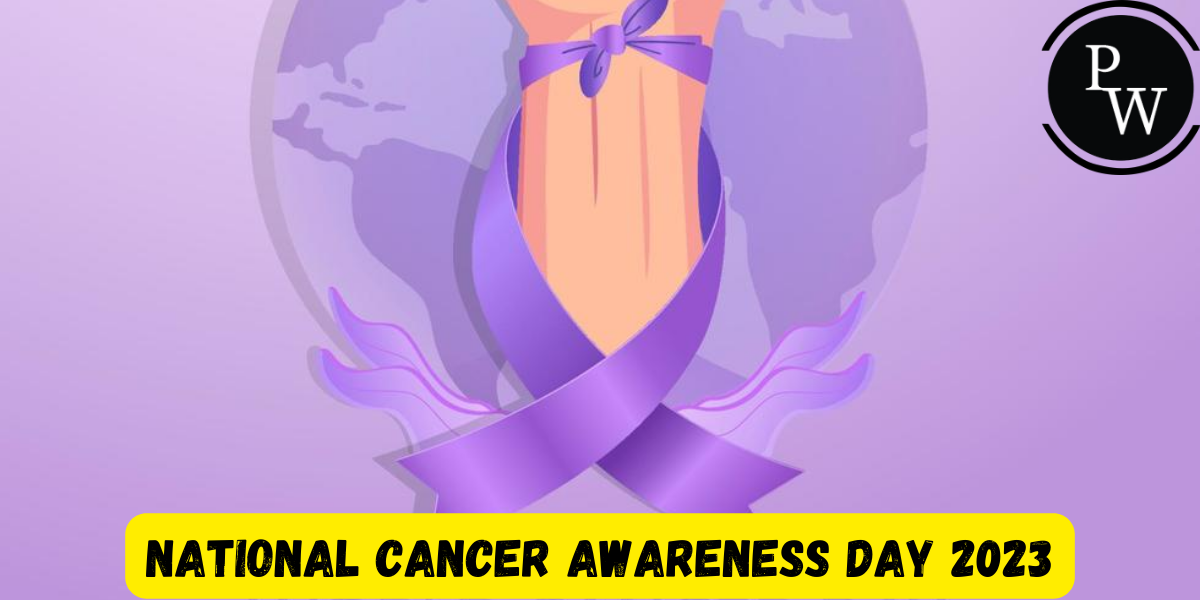
National Cancer Awareness Day 2023: National Cancer Awareness Day on November 7th in India, observed since 2014, aims to raise public awareness about the importance of early detection, prevention, and treatment of cancer. According to the World Health Organization (WHO), cancer is the second leading cause of global deaths, accounting for nearly 1 in 6 deaths. The 2020 World Cancer Report by the International Agency for Research on Cancer (IARC) revealed that Asia contributes to 49.3% of global cancer cases. The report predicts a 59.2% increase in new cases in Asia from 2020-2040. It also highlights that one in 10 Indians will develop cancer in their lifetime, and one in 15 will succumb to it.
India observes National Cancer Awareness Day on November 7th since 2014, aiming to promote awareness about the importance of detecting, preventing, and treating cancer early.
National Cancer Awareness Day was introduced by Union Health Minister Dr. Harsh Vardhan in September 2014. Since then, it has been observed annually, emphasizing the importance of early detection and treatment of cancer.
Dr. Harsh Vardhan initiated a state-level movement for cancer control. On this day, people are encouraged to avail free screening at government hospitals, CGHS, and municipal clinics. Information booklets are distributed to raise awareness about preventing cancer and recognizing early symptoms.
In a bid to make cancer treatment accessible, the government of Kerala proposed the "Suhurtham" scheme, offering free cancer treatment in districts and medical college hospitals.
National Cancer Awareness Day is a special day when healthcare organizations, government agencies, and non-profit groups join forces. They organize awareness campaigns, seminars, and screenings to reduce the burden of cancer nationwide. This day serves as a reminder to stay informed and take steps towards a healthier lifestyle.
Cancer is a group of diseases, as per WHO, where abnormal cells grow uncontrollably in any organ or tissue of the body. These cells go beyond their usual boundaries, invade nearby parts of the body, and can spread to other organs. This spreading process is called metastasizing and is a significant cause of death from cancer.
In men, lung, prostate, colorectal, stomach, and liver cancer are most common, while in women, breast, colorectal, lung, cervical, and thyroid cancer top the list.
Cancer develops when normal cells transform into tumor cells in a multi-stage process. Lifestyle also plays a crucial role, with factors like being overweight and having low physical activity associated with breast and colorectal cancer.
Understanding the root causes of cancer is paramount. The use of tobacco emerges as a significant risk factor for 14 types of cancer, as highlighted by the Lancet's report. Other contributors include alcohol consumption, drug use, poor dietary habits, and unsafe sex, particularly for cervical cancer, which stands as the second most common cancer in women.
Lung cancer's high-risk factors are associated with tobacco use and exposure to air pollution. Identifying these risk factors is essential for implementing effective preventive measures.
Detecting cancer early is crucial for effective treatment. However, cancer often presents with no specific symptoms. Regular cancer screenings play a vital role in early detection, making several cancers treatable. Common symptoms include changes in bowel habits, persistent cough, unexplained anemia, breast lumps, urinary changes, testicular lumps, and blood in the stool.
Multiple treatment modalities are available, ranging from immunotherapy, chemotherapy, and radiation therapy to hormone therapy, targeted therapy, stem cell transplant, surgery, and precision medicine.
Preventing cancer involves adopting a healthy lifestyle. Maintaining a healthy weight, following a nutritious diet, staying physically active, getting vaccinated, practicing sun protection, avoiding tobacco, and scheduling regular check-ups contribute to cancer prevention.
National Cancer Awareness Day is observed annually on November 7. The day serves as a reminder to raise awareness about cancer and its mortality rate in India. It emphasizes the importance of early detection and preventive measures in the fight against cancer.
